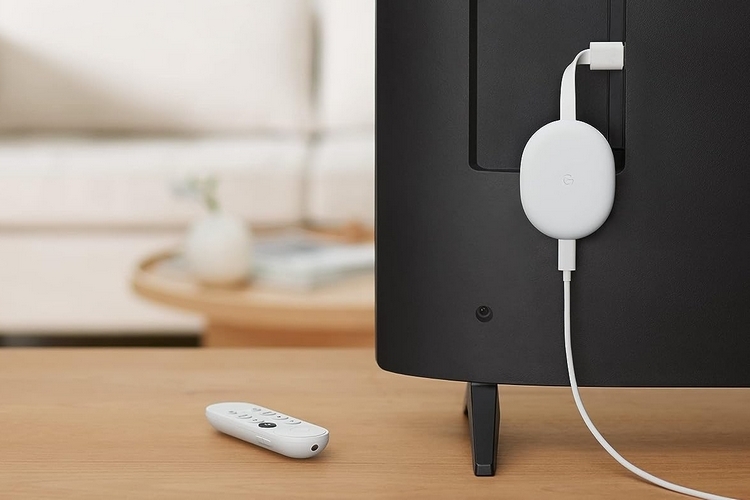
Yes, many modern TVs come with smart features baked in as part of the package. Problem is, the software preinstalled on most TVs aren’t exactly the fastest, the sleekest, or the most feature-packed, not to mention these TVs usually don’t have the most powerful processors onboard. That’s why most people opt for a streaming device, whether in the form of a stick or a box that you hook up to the back of your LCD or OLED TV.
Streaming devices, on the other hand, usually have more refined software packages, They have apps for nearly every new streaming service that pops up, all while being updated on a regular basis. Plus, if you find your current streaming device slowing down or feeling a little too underpowered, buying a new streaming stick or box is far more economical than getting an entirely new TV.
There are quite a number of options out there when it comes to streaming devices. They each run on their own hardware and software combos, so they end up offering entirely different experiences to their individual users. To many people, the software is the biggest deciding factor for streaming devices. The best ones do a great job of sorting and presenting not just various streaming apps, but also movies, shows, and other programs, allowing them to streamline the viewing experience in a significant manner.
All of the best streaming devices come with a dedicated remote, although some will also offer smartphone apps for those who lose their remotes in the void of the living room couch. Many also offer voice support, which makes it easy to find specific movie and show titles without the need to type on a cumbersome onscreen keyboard. Lastly, most streaming devices are 4K-capable now, with some entry-level 4K models often retailing at the same prices 1080p versions sold a few years back. However, there are still full HD options out there if you don’t care about streaming in ultra high-definition, which, let’s be honest, uses up a lot more bandwidth and usually entails a subscription premium.
These are the best streaming devices to bring smart features to your TV.
Amazon Fire TV Stick
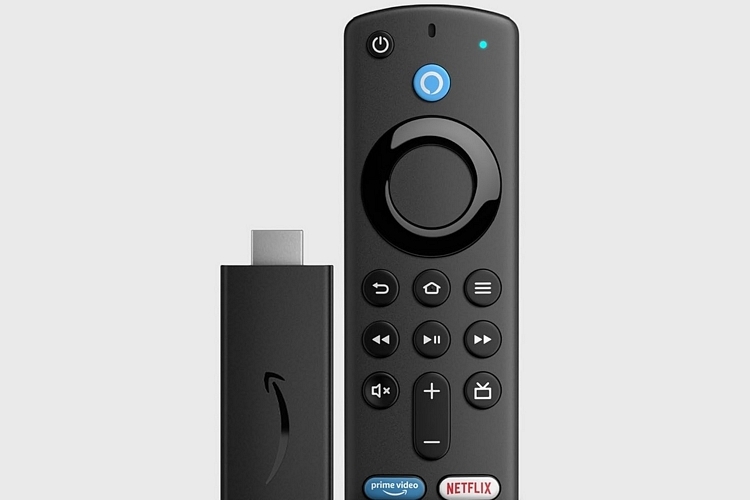
Pros
- Affordable price
- Supports all major streaming platforms
Cons
- No 4K support
- UI skews towards Amazon Prime Video content
- More ads than others
If you don’t mind using your old TV remote for traditional TV controls (brightness, volume, power), then Amazon’s Stick Lite might be the best budget option for streaming devices. However, we find the lack of TV controls a hassle, which is why we’re going with the standard TV Stick, which you can often find on sale at nearly the same price anyway.
There’s no 4K support for this streaming stick, so skip it if you want to enjoy your 4K movies on stream. Instead, it sticks to full HD streaming with support for HDR, HDR 10, HDR10+, and HLG, as well as Dolby Atmos audio, so you get to enjoy your 1080p videos with all the bells and whistles. It supports all major streaming services, although the interface does prioritize Amazon Prime Video content for stuff like recommendations. Still the UI is easy enough to figure out and works pretty well, so you should be able to find your way to any content you want, regardless of the platform it’s available on. Plus, the remote is easy to use and picks up voice commands very well. It does have quite a fair amount of ads, though, especially when compared with other streaming devices.
Roku Express 4K Plus
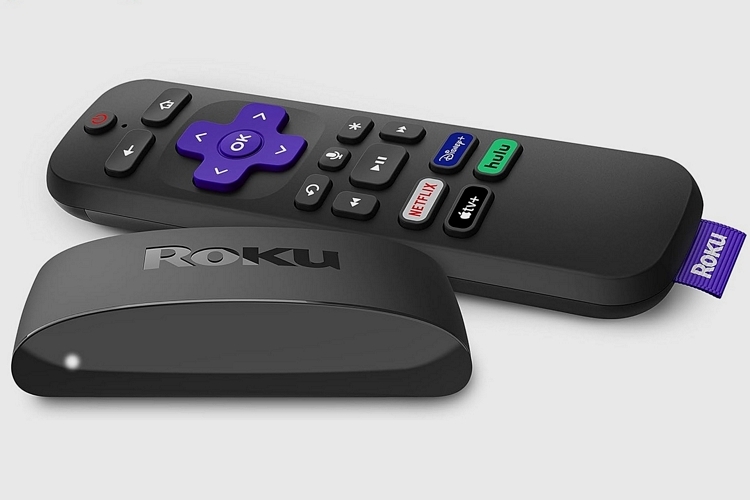
Pros
- Impressive 4K HDR performance
- Improved remote
- Snappy UI and great search results
Cons
- No Dolby Vision or Dolby Atmos
Yes, it’s a 4K HDR streaming device for under $30 and it’s an incredible value. It performs capably, too, with the hardware able to process those 4K HDR signals into crisp and beautiful images with excellent color reproduction. Suffice to say, you’ll have no idea you’re watching on a budget device. With that said, it offers no support for Dolby Vision or Dolby Atmos, so you don’t get the fancier visuals and sounds for compatible media.
We love the fact that it’s content-agnostic, so the UI doesn’t favor one content provider over the others. It’s also easy to find any media using the remote, whether from the voice search, which handles detailed commands really well, or from the recommendations. Seriously, we found the results it returned a lot better than some of the other streaming services we’ve used. The remote is also a big upgrade over the last generation, so it’s no longer the dealbreaker that it might have been in the past.
Chromecast with Google TV (4K)
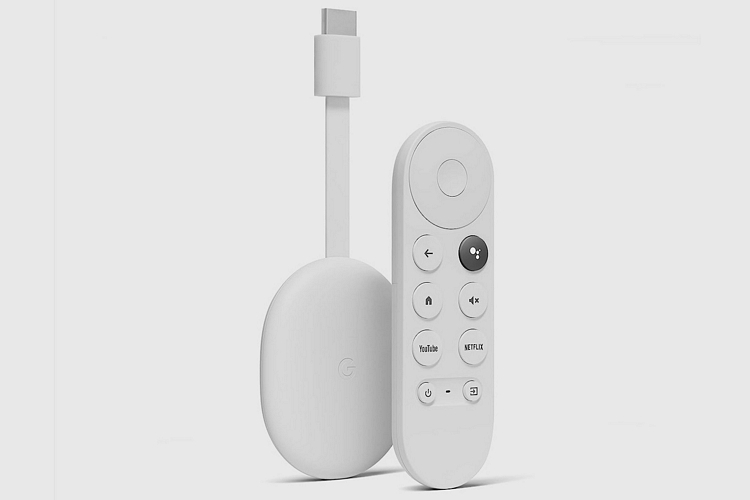
Pros
- Useful unified homescreen
- Live TV integration
- Excellent 4K HDR and Dolby Vision performance
Cons
- No traditional play/pause button on remote can confuse users
- UI can lag sometimes
A very polished streaming device, it offers one of our favorite interfaces so far with a very good home screen that organizes your content in a straightforward and useful way. We especially love that it singles out shows you might want to continue watching based on your viewing history (very handy for a series you might have stopped mid-way through), as well as the platform-agnostic recommendations for shows and movies you might want to try. The live TV integration is very welcome, both for the free TV channels and the paid live TV streaming services from YouTube, Sling, and Philo. Heck, it can even integrate OTA stations if you plug in a digital tuner, which is awesome, making it a really complete unified interface.
It supports 4K media with HDR and Dolby Vision, delivering excellent picture quality all around. You can also cast content from any Chromecast-enabled apps on your mobile devices if you want to watch something not available on the multitude of channels on there. Naturally, it uses Google Assistant for the voice search, which you can use to not just look up movies, shows, actors, and genres, but also any general information you want to run on Google Search, in case you don’t have your phone nearby.
Amazon Fire TV Stick 4K Max
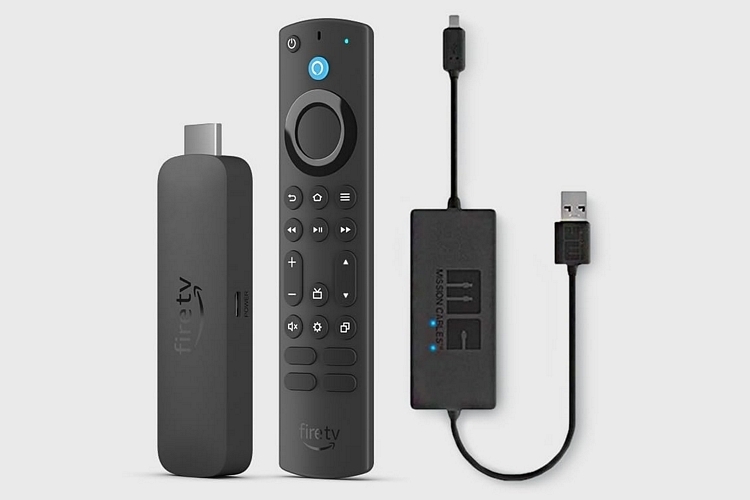
Pros
- Snappy software interface
- Support for Dolby Vision, Dolby Atmos, and Dolby Digital Plus
- Wi-Fi 6E tri-band connectivity
Cons
- UI skews towards Amazon Prime Video content
- More ads than others
We love how snappy the UI feels on this streaming device, which loads apps swiftly and lets you navigate without a hitch. The app support is extensive, so you can watch media on any service you want, although the promotion of Amazon Prime content can feel a little too excessive at points. Hopefully, Amazon can tone it down a bit going forward, although we’re not going to hold our breaths for it (yeah… we know they won’t). It uses Alexa for voice commands and it’s very good at what it does, with relevant and correct (most of the time) results for your searches each time out.
It can handle 4K video up to 60 fps, with support for Dolby Vision, HDR 10, HDR10+, and HLG, as well as Dolby Digital Plus and Dolby Atmos, so you get the full video and audio upgrades for compatible content (provided you have the hardware for them, of course). This is also one of the few streaming devices today with Wi-Fi 6E support, which should allow for better wireless signals, provided you have a compatible router.
Roku Ultra
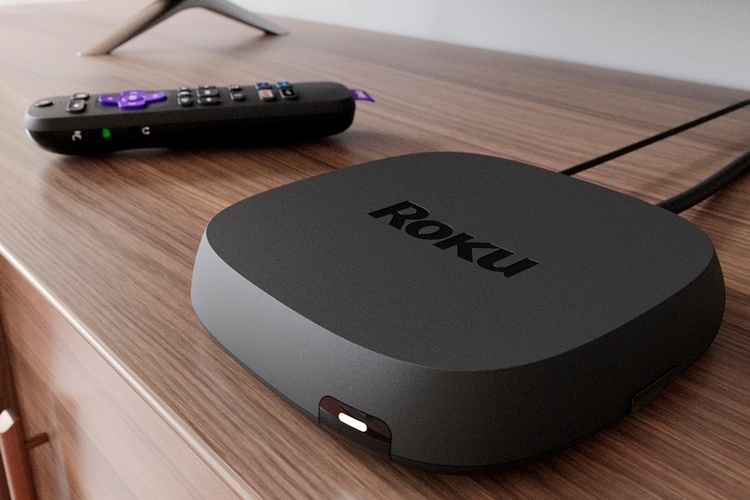
Pros
- Fast and snappy UI
- USB and microSD slots for local media
- Rechargeable voice remote with headphone slot
Cons
- Could use wider support fore more HDR standards
Coming in a form factor reminiscent of old set top boxes, this streaming device offers all the features in Roku’s stick devices with a few extra on top. Again, we like the straightforward UI, which makes it easy to find any channel. show, or movie you want to check out at any point. With this device, though, everything feels faster, snappier, and overall more responsive. It supports 4K, Dolby Vision, HDR10+., and Dolby Atmos, which should cover the most common standards, although we do wish it had even wider support, considering the price.

The streaming box comes with the outfit’s Voice Remote Pro, a rechargeable remote with personal shortcut buttons and a built-in headphone jack, so you can listen to the TV privately without having to use a phone app (app still required for wireless headphones, though). They even threw in a remote finder, in case you have trouble finding its exact location in the living room. Other nice elements include a microSD slot for playing external media, USB connections (plug in your external drive in there), and Ethernet connectivity for fast wired internet.
Apple TV 4K
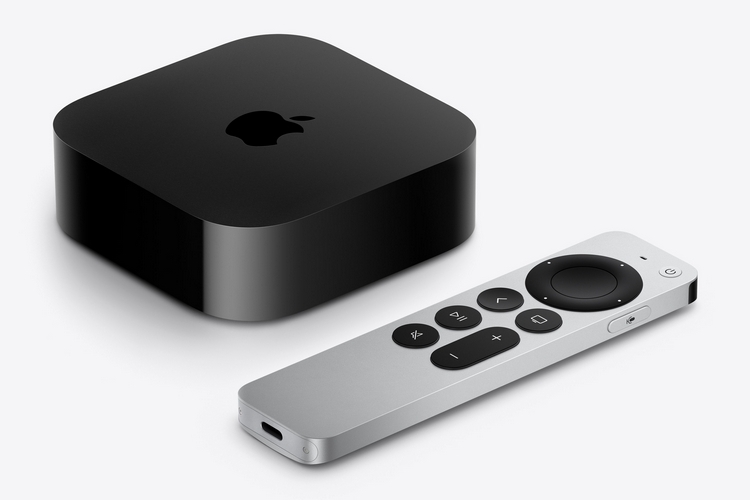
Pros
- Extremely fast software
- Apple Arcade big screen gaming
- Supports 4K, HDR, and Dolby Vision
Cons
- UI skews toward Apple TV+ content
- Problematic Netflix searches
Apple isn’t a company that does product halfway, so it’s not surprising that their streaming box feels really thoughtfully designed. Sure, it’s priced way higher than most competitors, but it delivers a fair amount for that premium you’re paying. For one, it’s insanely fast, so much faster than the top-end offerings from other brands, which you quickly realize when you skim through a video, moving back and forth with no hitch. We also love tvOS, which offers such a clean interface, although it does have a preference for showcasing Apple TV+ programming, which may or may not be your thing. On the downside, it’s nearly impossible to find Netflix content unless you dig through the app yourself, which isn’t fun.
People bought into the Apple ecosystem will love that it integrates Apple Fitness+ and Apple Arcade into the big screen experience. We’re not too fond of the minimalist remote, but you get used to it, especially once you get the hang of the touch-sensitive D-pad.
Nvidia Shield Android TV Pro
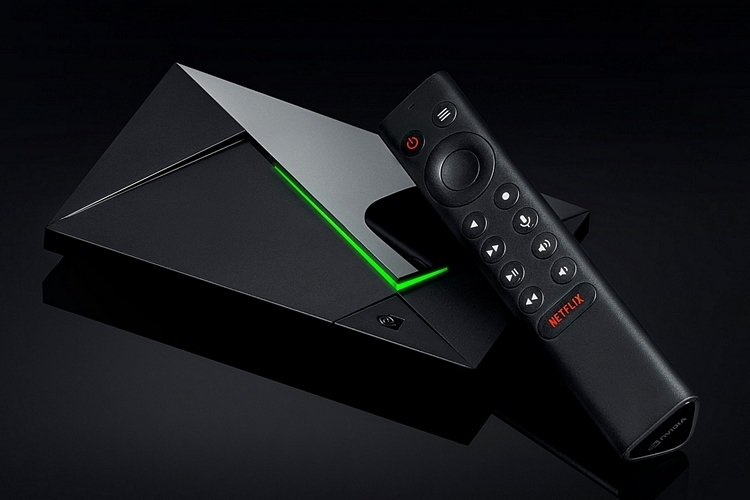
Pros
- Feature-packed streaming device
- Can be used as a PLEX media server
- Can stream games via GEForce Now
Cons
- Very expensive
- Adds a bigger streaming box to your TV setup
More than a streaming device for online services, Nvidia’s streaming box is frequently used as a PLEX media server, allowing people to maintain their own content library at home. It runs Android TV, so you get quite the customizable screen that you can tailor to your liking, with pretty powerful hardware onboard that allows it to stream native 4K and even upscale 1080p content to 4K with relative ease, complete with support for Dolby Vision and HDR10. Being an Android device, it uses Google Assistant for voice commands.
Nvidia customized the Android TV UI, adding a row on the homescreen for games. Yes, it only runs Android games natively (of course), but it does have support for GeForce Now, which is the outfit’s cloud gaming service that you can use to stream games you own from Steam, UPlay, and a few other supported services. If you want to play PC games on your TV and you have good connectivity, this is the way to go.